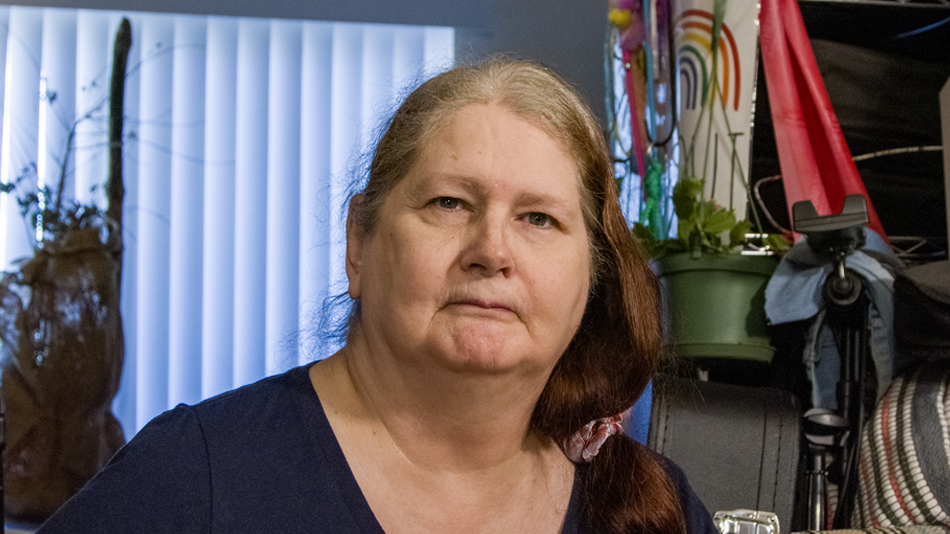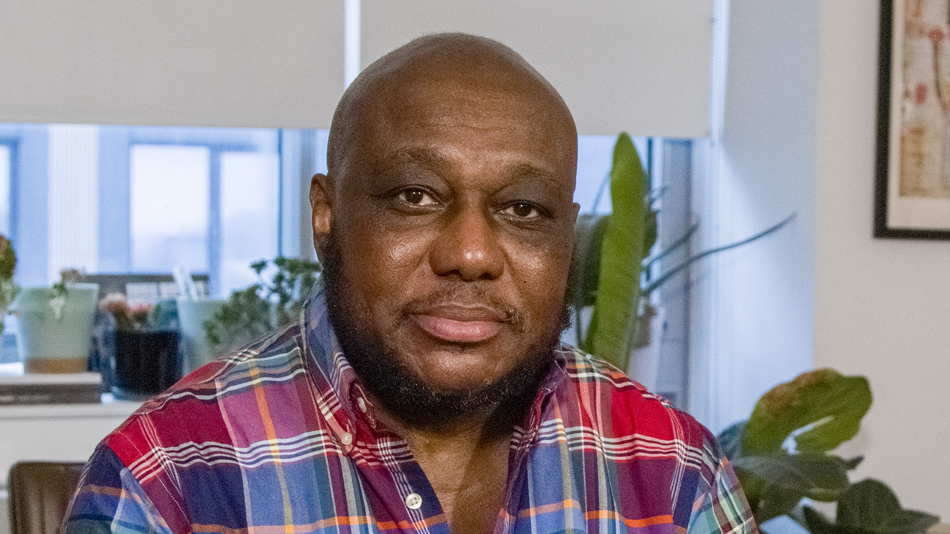I’m Kathyrn Gonzalez, and I’m from Austin, Texas.
I remember coming home for the summer, after my first year in college, it was 2004. I turned on the TV and there was a movie playing, it was Priscilla Queen of the Desert. It was halfway through, and sat down and watched it. And I wasn’t aware of what it was about. But a few minutes in, there was a scene where Bernadette is sitting at the back of the bus and Bob’s teaching her about auto mechanics. And one of the friends calls them all over to play in a lake nearby, it’s all very childlike and they’re playing in the water. And Bernadette lies back, floats in the water, and then Bob reaches out his hand and says, “Can I help you ma’am?” and pulls her up. And she’s kind of taken aback, because as a trans woman I don’t know that she’d ever been seen that way before. And that was the moment that I finally knew what I was.
And the kind of love I wanted to experience in my life. So I started researching, as best I could in the early 2000s. Internet, books, movies, talking to other trans women, and came to this understanding that if I was going to embark on this transition, that my responsibility was to do it as quickly as possible so that the people around me wouldn’t be uncomfortable or upset.
So I conceived of this trans narrative, that says especially for trans women that you have two years, start to finish, crash your body with hormones, get the doctor’s notes, change your name and gender marker, get all the surgeries, change your entire wardrobe, learn how to apply makeup flawlessly. And be as stealth as possible by the end.
So after all of that research, I started to transition, one of five attempts. The first in May 2004, I tried to apply for jobs at the University and was turned down. 2008, where I spent a week living as Grace at the Creating Change conference, I was so overwhelmed that I stopped. 2009, working at the Austin Gay and Lesbian International Film Festival, and living as Grace professionally for nine months only to be confronted with people that couldn’t see me for who I was, so I stopped. 2010, when I tried again and bought all the clothes, all the makeup, and that god-awful wig that scared the crap out of my husband, so I stopped. The fifth time, December 28th, 2010 diagnosed with HIV after being sexually assaulted, made the decision that I could no longer hide from myself, that I had to ditch the trans narrative, and finally start writing my own. People kept telling me that it was a new time, living with HIV was not dying with AIDS, it was different. But I was preoccupied. Preoccupied with this deep and intense fear that if I did die, no one would remember who I actually was.
So I started again, and went very, very slowly. Around that time I started asking my therapist if she would just please give me a diagnosis, if she would just please write down that I was trans, and she refused. And at the time I thought it was because she was being conservative. That she didn’t feel it was her place to diagnose me, or to give me the easy way out. And she was right.
Early 2011, I was sitting at the intersection of South Congress and Oltorf on my way to an individual therapy session, and had an epiphany. Like the final connection was made, and was finally able to conceive that I wasn’t spending my whole life trying to become a woman, but that it was a very simple fact that I always had been. And instead I’ve been trying very hard to be who everyone else wanted me to be. I remember sitting there, in the chair across from her that day and saying “I had an epiphany at a traffic light.”
I told her and she said, “Now. Now that you know it to be true, it is true. It’s always been true. It was never my place to tell you that it was true.”
And everything changed from that point.
I’m happier than I’ve ever been. Happier than probably anyone has any right to be. It took five tries, so many attempts to reject that narrative that is both imposed on us as trans people, and at least in my case imposed on myself.
I hope my story can inspire others to abandon their own imposed narratives and start writing their own, to give them the power to tell their stories the way they should be told.








Share